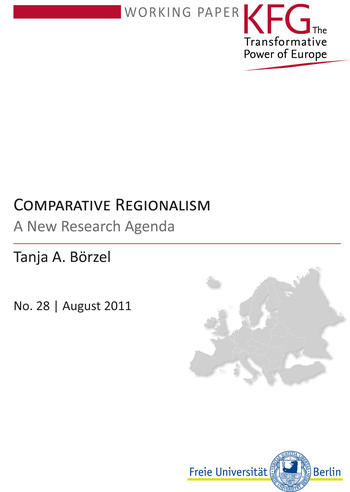Comparative Regionalism: A New Research Area
Tanja A. Börzel – 2011
After the end of the Cold War, students of International Relations observed an expansion of inter-state activities at the regional level. Regional and sub-regional groupings appeared to gain momentum as the way in which countries cooperate and should cooperate to pursue peace, stability, wealth and social justice. The surge and resurgence of regionalism has triggered the proliferation of concepts and approaches. The focus of this paper will be on processes and structures of state-led regionalism driven by the delegation of policies and political authority to regional institutions. Based on this understanding of regionalism, the existing literature will be reviewed with regard to three general questions. These questions do not only require research across regions but also allow developing a common research agenda to accumulate knowledge generated about specific regions. First, what are the outcomes of regionalism? How can we describe and compare the results of the delegation of policies and political authority? Second, what are the drivers of regionalism? Why do some governments choose to delegate policies and political authority while others do not? Finally, what are the internal effects of regionalism? How does the delegation of policies and political authority impact back on the domestic structures of the states involved?

